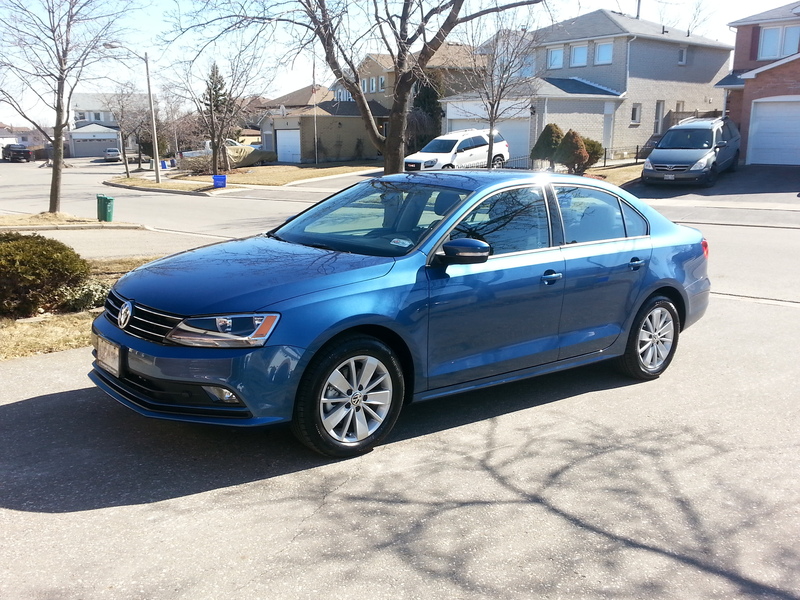On the road again
After 11 years and 260,000 Km, I've finally decided to get a new car.
We bought the Saturn L200 in January, 2004, after a rear-end collision totalled our almost-paid-for Saturn SL1. But, while we used the L200, I never really liked driving it. I had intended to get a new car after I had retired, but the market crash of 2008 put those plans on hold. Over the last couple of years, the Saturn has had a number of moderately expensive problems, the market has recovered, and I've driven the car almost into the ground. It's time for a new car.
After a fair amount of deliberation, research, and test driving, I decided on the VW Jetta TDI; it is comfy, roomy, and (according to Transport Canada), it gets great mileage. I went with the more-expensive diesel engine, in part because of it's power (I need all the torque I can get, to get in and out of the cottage), and because it can run on bio-diesel. Bio-diesel is a form of diesel that is refined from vegetable oils, and can be "home brewed" inexpensively, if need be.
I'm looking forward to my first trip up to the cottage, in a car that I have confidence in. And, I'm looking forward to many years of comfortable, easy driving in "Vin Diesel", my new Jetta.

- Lew Pitcher's blog
- Log in to post comments


Comments
One reason for looking at Diesel
So, why diesel? Or, perhaps, why not gasoline?
Besides the power (torque) consideration, there's a reason in conservation.
Electric vehicles are rare (although they are getting more popular). But an electric vehicle doesn't reduce pollution; it just moves it. The car engine no longer pollutes, but the technology to build the batteries does. As does the charging of the batteries. Sorry, but all-electric isn't the solution yet.
Hybrid Gas/Electric vehicles are the worst of both worlds. The gasoline engine pollutes, as does the charging and battery system. As an example of a bridge technology, hybrid cars are great, but like Electric-only, they have a ways to go.
Gas pollutes. Enough said.
Diesel pollutes as well. But, unlike Gas or Hybrid cars, you can brew your own diesel from waste vegetable oil. This one factor was the deciding one for me; instead of having to pump oil out of the ground (polluting as we go), we can convert a potential pollutant (WVO, courtesy of KFC or MacDonalds) directly into fuel. Less pumping and refining of mineral oil, and ecologically friendly disposal of waste vegetable oil. And, hand soap as a byproduct.
Now, I don't have any plans to brew bio-diesel for my Jetta. But, if I had to, I could. You can't do that with a Gasoline, Hybrid, or Electric car.
Gasohol
"But wait", you say, "what about gasohol? Isn't that a sustainable substitute?"
Gasohol is a mixture of (refined petroleum) gasoline and (grain based) alcohol. The alcohol is distilled from grains, typically corn. Much of the North American corn crop (some estimates say 50% or more) is now dedicated to the manufacture of alcohol for gasohol, and corn isn't the best choice for producing alcohol for fuel. So, food prices go up (corn is not only a human food, but is component in many animal feeds; increasing the price of corn increases the price of a wide variety of foodstuffs). While there are other potential sources for gasohol alcohol, the primary focus is on food crops: if we don't use corn, then we'll use wheat or soybeans.
so, we deliberately sacrifice our own food sources to make gasohol. Wasteful, I say.